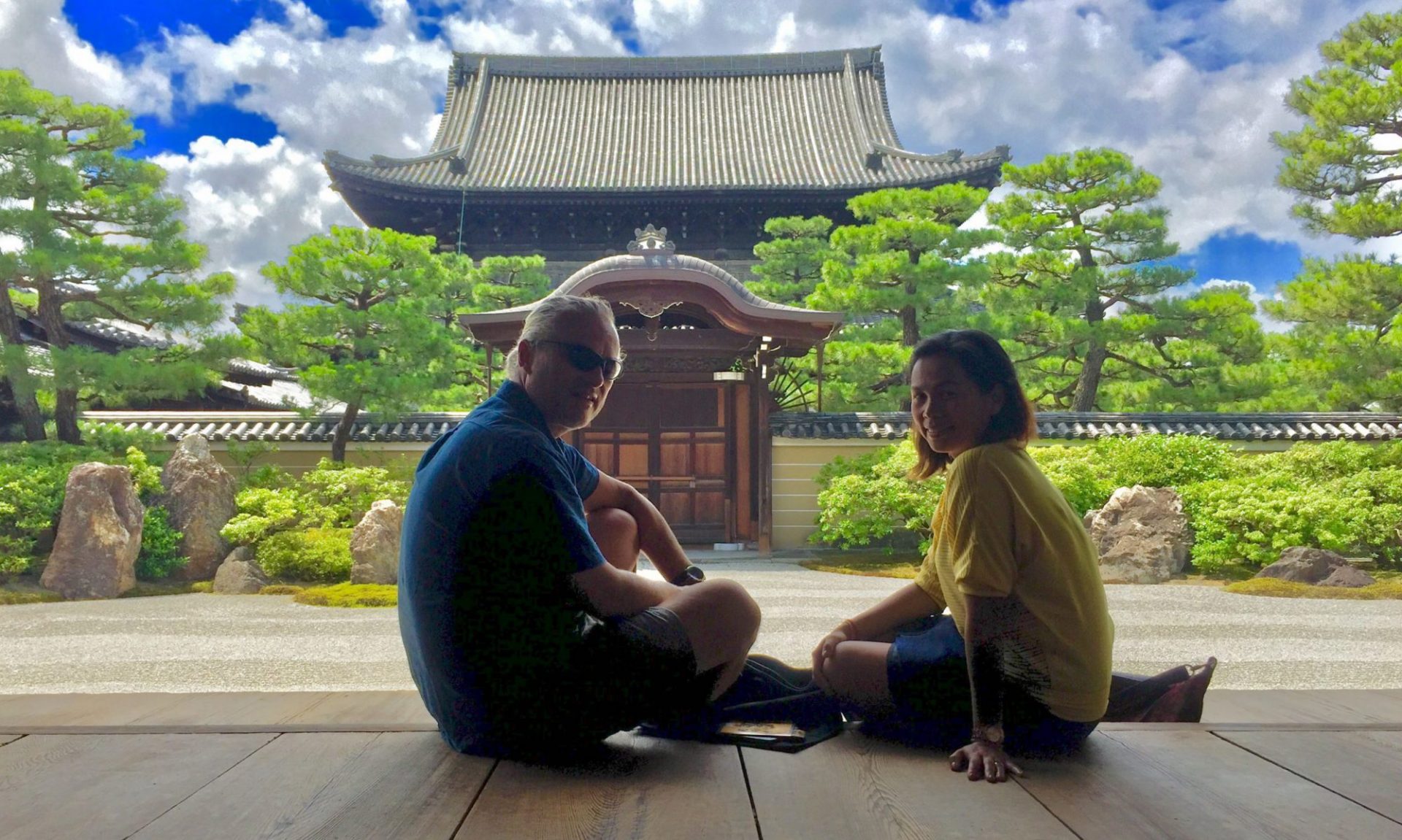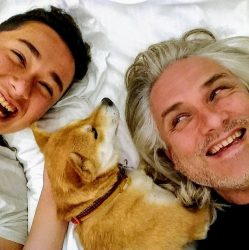There was a time in my life when I felt that no one really understood what I was going through. A lonely time. Every morning I woke up with this shitty feeling in my stomach that just would not go away and get worse and worse. Until it got to a point where I was seriously considering ending it all.
Or find help. That was the first step. All I had to do is ask for help. Help can come in so many ways. For me, it was just as simple as talking to my doctor who referred me to a good therapist.
I was diagnosed with PTSD and counseling took almost two years. It was a long and rocky road of looking back on traumatic events in my life. Reliving them again was painful and ugly. But then, as I experienced these events again, I learned how to live with what happened. Without ugliness, there is no beauty. I began to feel better and my view of the world gradually changed. I no longer felt alone and was able to let go of feelings of guilt. Now I know that it does not matter what others think of me. What matters is what I make of myself, that I can forgive myself and move on.
Counselling also had a strong physiological effect. Before counselling began my blood pressure was at 210/140. There was a real risk of suffering a stroke or heart attack. I had to take three different kinds of blood pressure medicines. But even with all these pills, the blood pressure did not return to a healthy level. Eventually and after the two years of counselling my blood pressure slowly came down. Now it is a normal 130/90 and I no longer need two of three medicines.
My body was in a constant state of alarm, always ready to deal with something terrible again. Therapy helped me resolve this kind of conditioning. The constant state of alert raised my blood pressure to the maximum. Reliving traumatic experiences using rapid-eye-movement therapy helped release stressful body memories – or negative karma if you will.
I am making this comparison with Karma on purpose. After counseling ended I wanted to find a new way to explore the world. I needed to adjust to a new reality that I never really experienced before: what it is like not to be in a permanent state of alarm. Raised as a Catholic I knew that church dogma was not appealing to me. I was looking for meditation practices to help me maintain my newfound freedom. I needed something beyond marketing slogans promoting mindfulness and breathing techniques for yoga and meditation.
I searched for meditation centers in the Netherlands and found the Maitreya Institute in Amsterdam. I attended regular meditation sessions and learned that Tibetan Buddhists have a good sense of humor. What amazes me is the analytical approach to meditation in Mahayana Buddhism. Our teacher always made us laugh, and I left every session with positive energy and a better understanding of the world around me.
I am very grateful to my Guru Ven. Losang Gendun who prepared me for my journey as a Bodhisatva. Every time I begin to meditate I visualize his big friendly smile and remember his teachings. My Guru is with me where ever I am and that is a good feeling. I am never alone.
But I also admit that I am not well-read in Buddhist literature. Nor am I an expert in Buddhist history and traditions. But I feel a strong connection to Buddhist practices during meditation. I don’t like to advertise my beliefs, except in this blog. I only write this post in the hope that it helps someone who went through similar trauma. Someone who feels the need to explore the world in a new way after a long and difficult journey. Perhaps this is you?
Once I learned how to live with PTSD I became free from its negative effects on me. I could have stopped there. But suddenly I had the opportunity to explore the true nature of reality. Analytical meditation re-awakened my natural curiosity. Nothing is permanent, everything is constantly changing, even though we don’t want this to be true. It is scary to learn that nothing lasts.
I look at matter and reality differently now. Material things can bring satisfaction to my life – for a limited period of time. And I appreciate the satisfaction I get out of things like my mobile phone – or campervan. They serve a purpose. But in the end, we need to let go. Clinging to things only brings dissatisfaction through the illusion of permanence. And our mind is working hard to maintain that illusion. We want to hang on to things and people that bring us happiness – and end up being unhappy if we can’t let go.
Why am I writing about this? Once I faced trauma and managed to free myself from its unbearable weight, I was able to see the world more the way it really is through analytical meditation. Now I see a reality less tainted by fear which makes it possible to see the impermanent nature of it – and all the suffering in the world that is caused by attachment.
Buddhism does not feature a God above us. Instead, we all have the potential to become Buddha. We all have the ability to cultivate the positive aspects of our minds and resolve the negative sides of our minds.
The path towards Buddhahood begins with generosity. Being generous is not easy on a good day and even harder on a difficult one. But regular meditation practice helps maintain a routine. How do I practice generosity? Do I donate to charities? But what if I don’t have money? My Guru Ven. Losang Gendun helped me understand this.
You do not need material things or money to make the world a better place. A smile for the frustrated and underpaid cashier in the supermarket can make a difference in her daily routine. A friendly hello to the homeless person in the street can make him feel less excluded – even if you can’t offer any money. A positive (but not patronizing) attitude combined with generosity is always welcome. Compassion and generosity can take many forms.
Of course, I still donate to charities because I can afford it. You should too if you have the money. But you can make a huge difference to the people around you with small things like kind thoughts and actions.
I live in Europe and even during this corona crisis, I have had plenty to eat and drink. I could feel bad about all those people in the world that are hungry. World hunger is one of the greatest injustices on this planet. But what purpose would be served if I am angry about it? What else can I do to reduce suffering in the world? Well, instead of being angry, I wish that all the sentient beings in this world will have the same opportunity as I do to enjoy healthy food and clean water. Even if I cannot donate money and end world hunger immediately – I can make that wish.
Of course, that wish alone does not end the world’s problems. But it makes me appreciate what I have at home and it reminds me of the billions of people in the world that might not have enough. It makes me think twice about buying products that are not fair trade or manufactured by exploiting others. In this way, I can make a small difference. And together we can make big difference. Without feeling guilt and without anger.
This is where my journey took me after I faced my own fears. And I still have a long way to go. Meditation practices help me stay on that path. Mahayana Buddhism is friendly and open allowing me to draw from my own cultural and religious experiences. I am a cultural catholic of Dutch-German extraction. It does not make sense to deny my heritage and upbringing. Instead, I added Mahayana Buddhism to the mix. For example, now I believe that Jesus was actually a Buddhist. (I can hear you laughing! And that’s a good thing!)
To me, Buddhism makes sense of Jesus’ virgin birth. I see the virgin birth not as Jesus being conceived without sexual intercourse, but as a Buddha coming into the world free of negative Karma and equipped with the strong desire to return to this world until all sentient beings are free from suffering.
I hope that reading this blog gives you hope. Perhaps it even inspires you. You might not be interested in Buddhism and there are many other ways to explore generosity and compassion. All religions have positive aspects and all have the aim to make the world a better place. It is the interpretation of religion with a view to gain power over people that is problematic.
What matters is that you make that first important step: ask for help if you need it, especially if that shitty feeling in your stomach just isn’t leaving you alone. Listen to that feeling and don’t ignore it. That is how your journey will begin. I wish you the best of luck. And if you want to get in touch for a chat – here is how to find me:
Email: fritz@fritzkohle.com
Whatsapp: +31 642156741
Perhaps you want to explore some of these topics in more detail. Below you find links that may be useful to you.
Signs of Depression
The Mayo Clinic explains symptoms of depression.
List of suicide helplines worldwide
Want to talk to someone in your country? This wikipedia list is pretty comprehensive.
A sceptic’s path to enlightenment
I really like Scott Sibbe’s and Stephen Butler’s podcasts and guided meditations .
Maitreya Institute Amsterdam
A great place to start your journey into Buddhism if you are in the Netherlands.
Foundation for the Preservation of the Mahayana Tradition
The Maitreya Institute is affiliated with the Foundation for the Preservation of the Mahayana Tradition. Ther FPM is an organization devoted to preserving and spreading Mahayana Buddhism worldwide, centres are located around the world. Start your search here if you want to find an FPMT centre near you.
Website of the Dalai Lama
Really want to get into Buddhism? See what the Dalai Lama is up to including his teachings.

